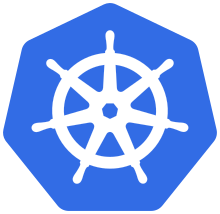A silver lining of any crisis is that experts get a data point… or many data points, depending on what that crisis is. The lessons from the Covid-19 pandemic, as bitter and hard-won as they might be, will find a use. It is the event that will test in real life whether the infrastructure already put in place will respond well.
“Covid 19 is a black swan event,” said Patrick McFadin, Apache Cassandra and Developer Relations at DataStax. He was the second speaker for the webinar, “Cloud Native Data: The Foundation of Modern Business,” presented through The Briefing Room on March 31, 2020.
McFadin began by explaining cloud native data to the audience. “I realize it may seem like just a trendy buzzword to some of you,” he admitted. “Digital transformation, big data, service-oriented architecture—these all were buzzwords at one time.” However, each of these was a shorthand way to refer to a pressing need that had to be solved as software and networks evolved.
He defined “cloud native” as follows: “scalable apps running in modern dynamic environments that use technologies such as ‘containers,’ ‘microservices,’ and ‘declarative APIs.’”
Different layers are important to cloud services. The bottom line, though, is that every layer must be dynamic, scalable, and self-healing. “That’s how you survive.”
In surge times, whether it’s Black Friday shopping or the Covid pandemic, McFadin said, “there’s a shortage of some thing due to scarcity.”
One of the first problems to address is distributed data (the software Cassandra will help) and NoSQL. The declarative application interface is the programmable, repeatable infrastructure that is needed for distributing data.
“Kubernetes is really the right way,” the way of the future, he indicated. Kubernetes is an open-source system for automating deployment, scaling, and management of containerized applications.
“Data operations need to be cloud native as well.” As key indicators, he pointed the audience to the retail giant Target, which is migrating to Kubernetes.
“Datastax wants to make Cassandra the default database handler for Kubernetes,” he said. “Cassandra is the right choice—it is dynamic, scalable and self-healing.”
McFadin provided further detail on how the Cassandra database powers the largest applications on the internet with a masterless architecture that enables zero downtime on a global scale.
Interesting times lie ahead. ♠️


